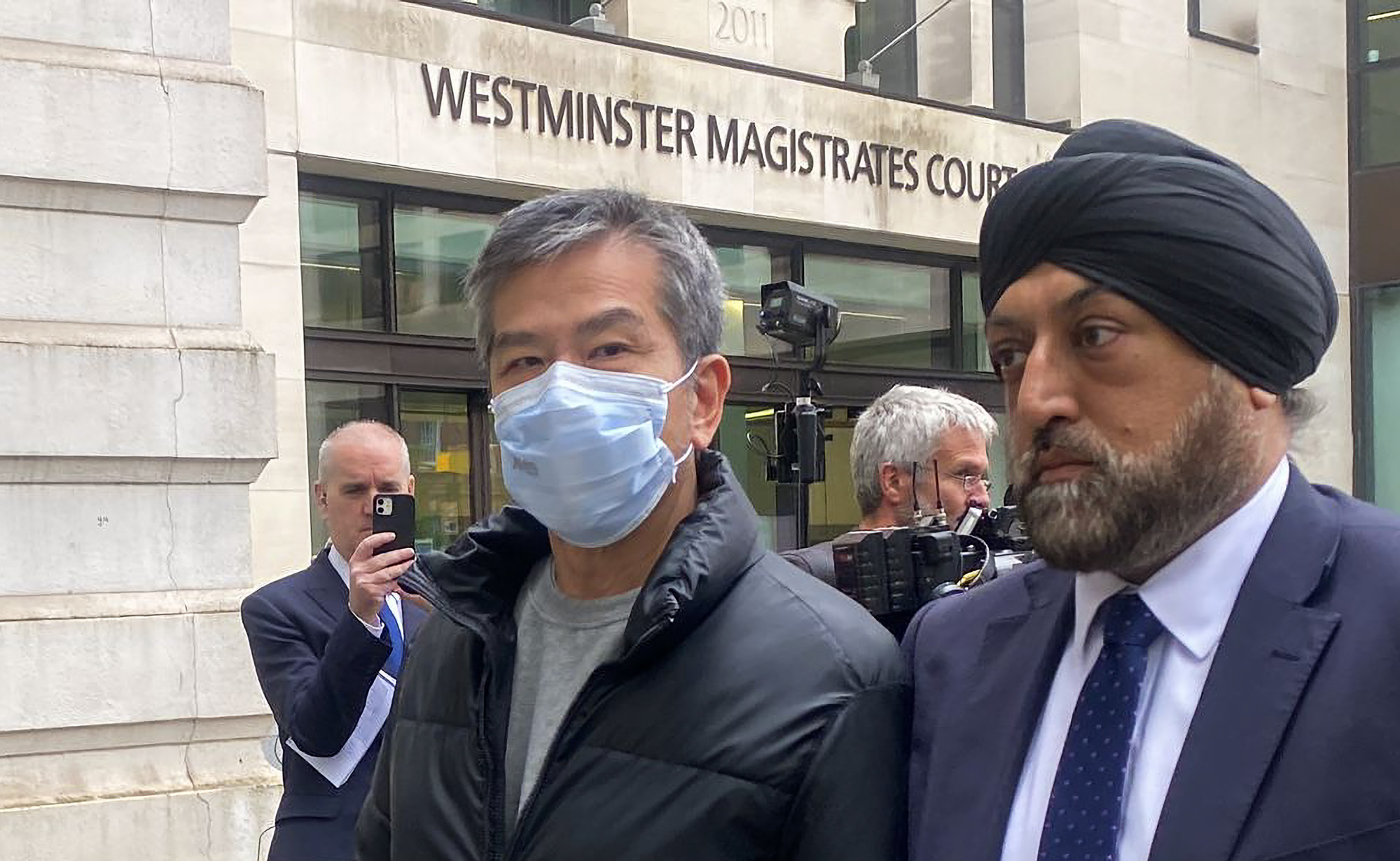
Hong Kong trade offices’ activities are legitimate but may risk crossing ‘blurry’ security red lines of host nations: experts
- A foreign government may level accusations of espionage when it thinks its boundaries have been crossed, international relations expert Wilson Chan says
- City’s Economic and Trade Offices put under spotlight after manager ensnared in an alleged spying case
Hong Kong’s overseas trade offices’ pursuit of economic diplomacy is a widely accepted and “absolutely legitimate” approach, but it risks crossing the host countries’ national security red lines which can be “blurry”, international relations experts have said.
The city’s Economic and Trade Offices (ETOs) set up outside mainland China have again drawn intense scrutiny after a manager of the London-based one was charged, alongside two others, by British authorities for allegedly spying on behalf of Hong Kong.
International relations expert Wilson Chan Wai-shun of the Chinese University of Hong Kong said the city’s trade promotion offices played a function that was more similar to the trade and commerce counsellors deployed within sovereign states’ diplomatic missions than independent trade promotion associations.
“Because of Hong Kong’s unique status, ETOs are actually regarded by other countries as the de facto commercial counsellor function, so these ETOs are given the convenience and granted some diplomatic immunity and diplomatic legal powers tied to commercial consular functions,” Chan said.
The one in London, for instance, enjoys specific diplomatic exemptions and privileges under Britain’s Hong Kong Economic and Trade Office Act 1996.
However, political pressure is mounting for London to strip the city’s economic office of its diplomatic privileges.
Brian Wong Yue-shun, an assistant professor of political philosophy at the University of Hong Kong, said it was an “absolutely legitimate and reasonable approach” for countries as well as localities to pursue economic diplomacy outside their home turf.
“Hong Kong has every right to pursue economic diplomacy as an SAR of China. Indeed, countries should not politicise or curtail such diplomacy so long as it does not manifest as a cover for clandestine and intelligence-gathering activities,” Wong said.
An official from an European trade promotion organisation who had previously been stationed in Hong Kong said some trade organisations did raise suspicion of being a guise for intelligence operations with their unusually large size but low-key presence.
“North Korea has a very big trade promotion organisation in [my country’s capital], but you never saw anyone doing commercial work and no events, nothing,” said the official, who declined to be named due to the sensitivity of the matter.
The European official said the trade office’s structural set-up and job nature would also influence how “political” the work would be, as the interests to be served “would be somewhat different when you report to a ministry of economy or to a ministry of foreign affairs”.
Hong Kong’s ETOs are under the oversight of the Commerce and Economic Development Bureau, and are tasked to carry out works on “public relations” for the city, in addition to fostering commercial relations and promoting investment, according to the latest government budget.
The Hong Kong government spent HK$414 million (US$53 million) to maintain the 14 overseas ETOs in the 2023-24 financial year. The total headcount of all offices stood at 191 by the end of March this year, including 19 in London, 17 each in Berlin and Brussels, and 15 in Geneva.
In the 12 months up to March, all the 14 overseas ETOs had arranged over 1,300 “calls on senior government officials/organisations” and organised 825 functions as well as events.
Chan said such exchanges with local officials and think tanks might put ETO officials at risk as information involving trade and investment would sometimes be considered sensitive, especially if special diplomatic treatments could not be applied.
“Every country has a boundary, and when it thinks the way you do things has crossed that boundary, it could accuse you of carrying out espionage,” he said. “That line can actually be very blurry.”

Bill Yuen Chung-biu, London ETO’s official manager, was charged on Monday with two other men over assisting an overseas intelligence service and foreign interference between December 2023 and May this year.
One of the allegations involved surveillance against activists from Hong Kong.
The three were granted bail and the case was adjourned to next Friday. The London police have said 11 people had been detained in the case.
The city’s convenor of the key decision-making Executive Council, Regina Ip Lau Suk-yee, who helped set up ETOs in Sydney and Singapore in the 1990s as a commerce official, had said she was shocked by the allegations of surveillance.
Chief Executive John Lee Ka-chiu said on Tuesday that the city government had requested more details from the British consulate in the city.

